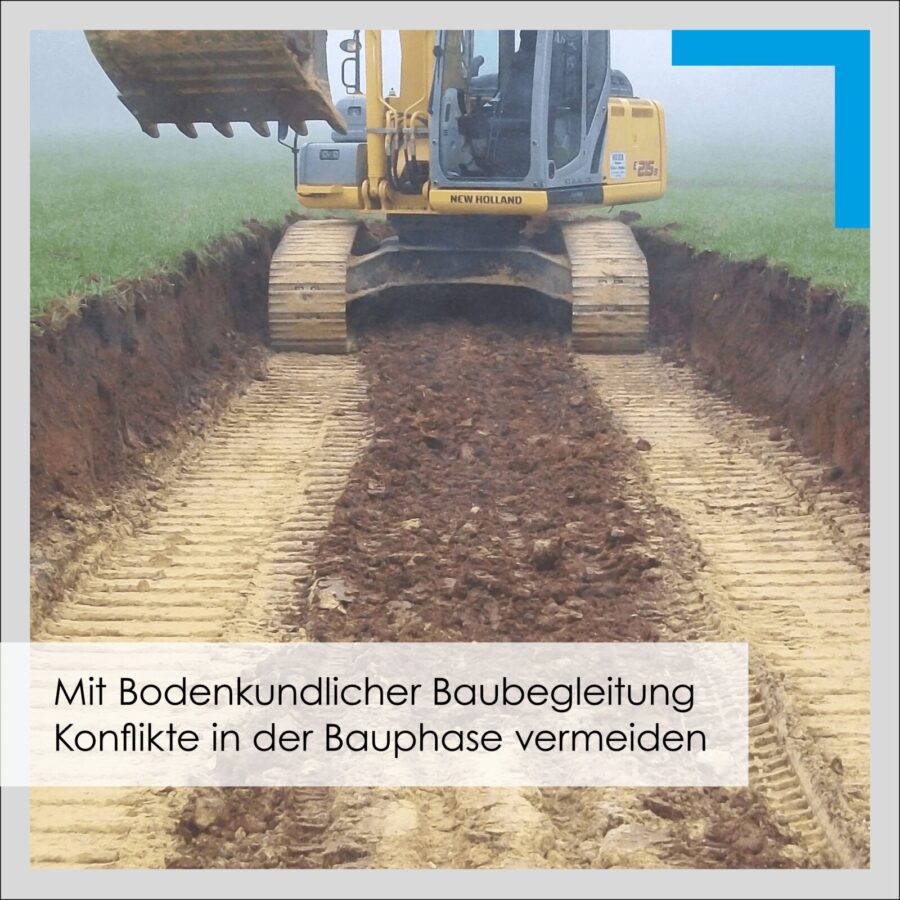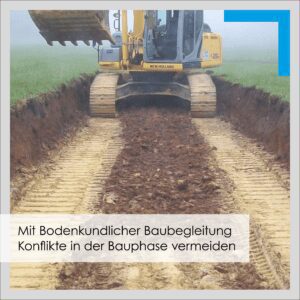NEWS: The Soil Monitoring Ordinance (BBB) was introduced into the Federal Soil Protection Ordinance by the Federal Council on 25 June this year. The aim of the BBB is to do justice to soil protection in the context of construction projects. Large areas of soil are affected, especially in large construction projects such as the laying of supply and disposal lines. Since these areas are to fulfil natural soil functions again after the measures have been carried out, it is important to avoid or reduce soil impairments caused by the construction process.
Soil monitoring can be applied to all building and civil engineering construction projects that affect the soil over a wide area, to landscaping and to all linear and surface construction projects, such as traffic routes.
The tasks of the BBB include the definition of soil-protecting boundary conditions and requirements as well as the preparation and examination of the necessary planning and data bases. In addition, necessary measures are defined from a soil protection point of view. Another component is the preparation of pedological implementation plans, which can, for example, specify the implementation of soil removal or recultivation targets. In addition, the expert takes part in construction meetings and provides advice during construction in order to ensure soil protection in all phases of the measure. Finally, the construction work is inspected.
Since 2017, the Bundesverband Boden e. V. (German Soil Association) has been offering a certification course in cooperation with the University of Osnabrück, which is primarily aimed at employees of engineering and surveyor offices. Components of this course are the legal framework and soil science requirements.
Through targeted planning and sufficient expertise, harmful soil changes can be prevented right from the start. Measures to protect the soil can include laying load distribution plates on ground surfaces that are regularly driven over or using tracked instead of wheeled vehicles. Another important point in these plans is to consider soil moisture. Soils are usually much more susceptible to compaction when soil moisture is high. Therefore, construction measures should be permanently monitored in order to take measures to protect the soil depending on the prevailing conditions.
The timely involvement of soil monitoring has various advantages. On the one hand, legal certainty is increased, as the principle of precaution before aftercare is applied. In addition, conflicts during the construction phase can be avoided from the outset. Another advantage of BBB is that the costs for recultivating the land are reduced. This, too, is "engineering for a better tomorrow"!
Image source: Soil science construction monitoring - GeoTeam Naila (geoteam-umwelt.de)
Other sources: LANUV (nrw.de) / Bundesverband Boden e.V. - Soil Science Construction Monitoring (bvboden.de) / LANUV technical report 82 (nrw.de)
Learn more about our work and projects and follow us: ![]()
![]()
#mullandpartners #engineeringforabettertomorrow #BBB 1TP5Soil science construction supervision


